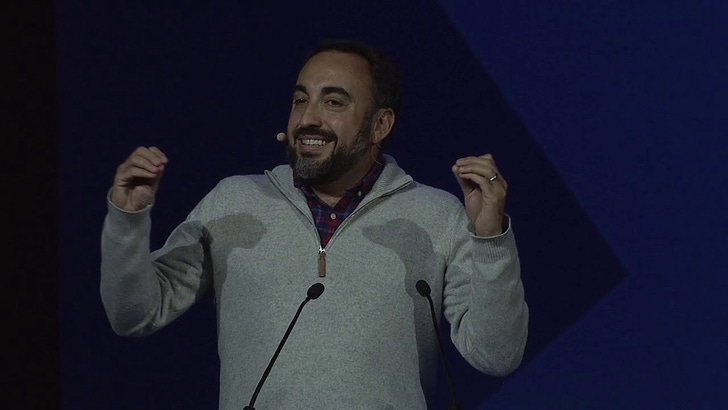Part II is coming up next week — not in months this time! Hope you are keeping well and find the piece below useful. You might also enjoy this recent article I wrote about a Nazi goalkeeper who overcame hate.
Part I : The Internet is Real Life
The other day, The New York Times sent me an email entitled “The Internet is Real Life.” It was intended to tout an OpEd by Patricia Campos Mello about Jair Bolsonaro’s so-called “Department of Hate” in Brazil. While the substance of the story was chilling — government funded disinformation, trolling and, eventually, violence on the streets aimed at journalists, women and others — it was the odd headline that struck me.
A headline identifying “Real Life” with “Internet” seems obvious, less “Man Bites Dog” than “Dog Bites Man.” Maybe, for some people, the words suggested, there’s still a world where there’s a separation between what’s “online” and what is “reality.”
As someone who wrote all their undergraduate papers by hand, I can wrap my head around a viable separation between “computers” and “humans.” But, as someone who has been involved in online information for the whole of this century, I am keenly aware that the idea of the internet as some sort of interactive television-type entertainment separable from “real life” is a dangerous misunderstanding.
Even before virtual reality (and once that arrives, really, God help us) the internet is pervasive and immersive. It is as pervasive as the air you breathe but — because it’s different for everyone — it’s hard to see how truly putrid it is on a daily basis. Your Google searches find what it thinks you want to see. Your Google is not my Google. I don’t see them when I surf using my own online identity because I am not a good recruit for them but, when I look under the surface at Facebook, I see hordes of Holocaust denial groups looking for new members.
Astonishingly, this is not the worst problem on the internet. There are at least three things worse than Mark Zuckerberg knowingly hosting murderous anti-Jewish racism for at least 5 years because he doesn’t want to block people if they have questions about history.
First is that Facebook has already been instrumental in at least one ethnic cleansing. It seems likely that fake news hosted on Facebook platforms has led to systematic lynchings of Indian Muslims. Way beyond that, though, Zuckerberg has apologized (he’s sorry, but not accountable or ready to change anything) for the murder of the Rohingya in Myanmar.
Second is that the lies on the internet are inescapable and invisible. Most of the time you cannot see or counter most of the lies that are being told to people that you could help. On the odd occasion that this propaganda becomes visible it is shocking. It’s not just narcissistic Twitter feeds where falsehoods proliferate and fester, it’s everywhere. Even at the fact-checking, anti-Trump Washington Post, you can surround the news with lies.

Third is that Facebook is literally selling us all. It is free to use because it sells us, its users, as its product. You’ve all heard the story about the man who found out his teenage daughter was pregnant when Target started sending new parent offers to their house because of the patterns of her purchases. That was nearly a decade ago and Facebook knows billions of people a million times better now than Target did then.
Charles Duhigg, in the New York Times 8 years ago, talked about the construction of the algorithms and somehow put his finger on the profound problem without, seemingly, realizing its depth: “Luckily, simply understanding how habits work makes them easier to control.” Facebook knows our habits and sells access to our controls.
Facebook isn’t selling onesies, it’s selling influence. It will as happily sell you to haters as booksellers. It will sell our most vulnerable individuals to the worst conspiracists and scammers. It is as happy to promote cults to college students as it is to sell information access to Cambridge Analytica.
If we don’t grasp this nettle soon it may be too late. At the absolute least we need to impose the norms of truth and decency on the internet. As we’ve seen with the global Black Lives Matter movement, these social norms are the minimum from which we struggle to improve. The Silicon Six have collaborated with those whose interests are anti-Truth, anti-Democracy, anti-Equality and anti-Fairness. Already, incrementally, their Faustian bargain is selling our soul, our society and, if we’re not careful, our safety.
————
In Part II I’ll spell out a few more areas of concern and suggest how we can take steps to improve the system.


